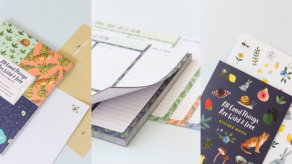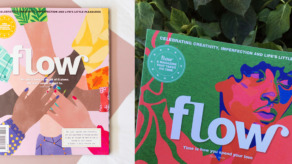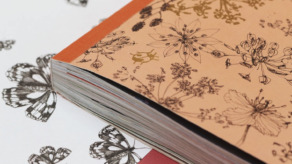The beauty of repetition

We tend to put a lot of emphasis on new things in our society, but there is comfort, calm and depth to be found in the familiar and repetition, as journalist Annemiek Leclaire discovers in Issue 36.
It had been many years since I took the boat to the island of Texel in the Netherlands. After having spent nearly all of my vacations and days off there for twenty years, I returned. Circumstances had changed, and I was no longer with the man I had traveled to the island with all those years.
In order to adjust to my new situation, I wanted to go to destinations that were not emotionally charged with history. The ‘new’ focuses on tomorrow, not on the past. It stands for progress, not for decline. The ‘new’ is the future.
I took my children with me to cities we had never seen before, we visited new museums, neighborhoods and harbors, saw different shapes and colors. This time, however, we were relieved one summer evening to see the familiar contours of the island that lay before us. We knew exactly what to expect, and that was precisely what made it so nice.
Repetition is therapeutic
In his book The joy of missing out, psychologist Svend Brinkmann writes that repetition is therapeutic. Rituals provide structure and something to hold on to, and free us from the tyranny of choices. After all, the world is constantly inviting us to try, buy and taste something new. Everything and everyone is vying for our attention, and the number of possibilities is overwhelming. To live a good life, it would be better to ignore this overabundant supply as much as possible, Brinkmann says, and do what you’ve always done. To focus our attention on something specific instead of always looking for something new.
This predilection for the ‘new’ isn’t just because we live in a culture that glorifies youth and innovation and struggles with aging. Our brains also play a role. Scientists have discovered that a small particle in the middle of our brain lights up when our eyes see something new. This motion is linked to the production of a chemical that makes us feel good: dopamine. This is why it’s also a good idea to protect ourselves from an excess of possibilities—we are incapable of putting up resistance.
Comfort in predictability
There’s something sacred about the new: We want to read new books, hear new ideas, try out new technologies, explore new destinations, buy new houses and even try new partners, despite the fact that the familiar can often be so important too. This is why some people read the same books over and over or watch the same movies more than once—the predictability of it can bring comfort when needed.
Repetition can help complicated pieces of music, movies or books reveal more and more elements of their richness. Maria Popova of the Brain Pickings website keeps a selection of her favorite books on her nightstand, such as The Lives of the Heart by Jane Hirshfield and Hope in the Dark by Rebecca Solnit, reading a few passages before going to sleep. She rereads The Little Prince by Antoine de Saint-Exupéry at least once a year. ‘I somehow find new wisdom and pertinence to whatever I am going through at the moment,’ she said in an interview with The New York Times.
Recurrence in philosophy
The current love of everything ‘new’ is referred to as ‘neomania’ in philosophy: the obsessive belief in the superiority of that which is new, at the expense of something that has long proven its worth. In The joy of missing out, Brinkmann asserts that it’s actually much better to be able to appreciate and perpetuate that which has already been learned and discovered in the world. As far as he’s concerned, concepts such as ‘originality’ and ‘authenticity’ are overrated.
All you have to do is look at the history of craftsmanship to see the truth in this. Painters used to learn by copying masterpieces. They practiced their brush strokes using famous landscapes and portraits as inspiration. The road to mastery is one of endlessly motivated and targeted practice until you have gotten the hang of it, be this a piece of music or a personal best in a marathon.
Pint calls clinging to repetition a resistance to illusory changes. “The pursuit of new things will only lead to superficial change,” he says, “the kind that leaves underlying structures unimpaired. The stress of adjustments to these feigned changes means that no one gets the time to change for the better. In the words of French author Jean-Baptiste Alphonse Karr: plus ça change, plus c’est la même chose (the more things change, the more they stay the same).”
- Read Annemiek’s complete artikel on the beauty of repetition in Issue 36.
Text Annemiek Leclaire Photography Erol Ahmed






